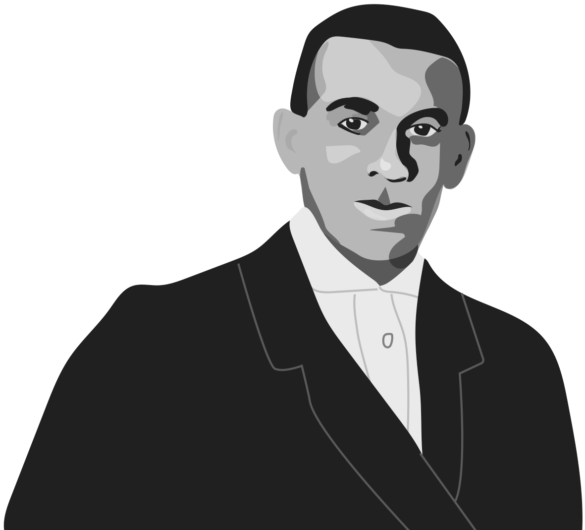

ILLUSTRATION BY KAREN HILL, LAW WEEK FILE
When the Sam Cary Bar Association in the early 1970’s started mentoring black lawyers in Colorado, the face of law was vastly different than today. There was such a small pool of black lawyers practicing in Colorado that many attorneys struggled to find even footing in the field without adequate mentorship opportunities. Seven attorneys founded the bar association with the goal of addressing this need in the state but the first step for the organization was perhaps one of the more controversial ones it would take in the almost 50 years since; the founders named the group after a Denver attorney who had been disbarred and then returned to practice.
Samuel Cary was born in Kentucky on July 9, 1886, and he graduated in 1910 from the Washburn University School of Law, becoming “the first African-American graduate of the school,” according to the Washburn Law Journal. Cary began practicing criminal law in Denver’s historic Five Points neighborhood in 1919 after being admitted to practice by the Colorado Bar Association. He was one of the first minority attorneys in the area – in turn, feeling a pull to represent other ethnically and socially marginalized groups.
His practice quickly garnered controversy in the community. After seven years of serving those who were unable to pay for representation and minorities who may have otherwise been denied representation, Cary was disbarred. The CBA received several complaints about Cary’s lack of financial management, and the association in conjunction with the Colorado Supreme Court and a third-party referee disbarred Cary on Oct. 15, 1926 for “neglected finance,” according to David Erickson, a former CBA member, author and informal historian for the association.
In the Colorado Supreme Court’s final written opinion, evidence is brought forward showing that Cary may have habitually retained reimbursable fees from paying clientele to cover costs for those who could not. His pro se defense failed and financial records seemed to conflict with his testimony. The majority opinion, written by Chief Justice Boatright, cited a collective concern that Cary had behaved disloyally to his clientele and may have broken community trust in his representation. But some current legal professionals question the overall decision to disbar on these grounds, citing the move as an unusually harsh punishment for a new attorney.
In 1935, the CBA and Supreme Court reinstated Cary and allowed him to practice law again in the state without any other incidents on his record until his retirement in 1945. The move to reinstate Cary may have been in response to a small but strong public outcry at his disbarment. As The Colorado Lawyer noted in Six of the Greatest: A Tribute to Outstanding Lawyers in Colorado History, “nearly half of Denver owed him money,” as he represented many of his clients pro bono or at a significantly lowered rate. “For [a reinstatement] to happen, you had to have really good connections… people within the bar who would speak on your behalf,” said Erickson, referencing the unusual move from both agencies.
His legacy left a permanent mark on not only state legal history, but also on the history of black lawyers in the U.S. The SCBA is one of Cary’s lasting marks on the face of law in the state. Offering mentorship and resources to the state’s more than 300 black lawyers, the association seeks to ensure a healthy and diverse future for Colorado’s legal system.
– Jess Brovsky-Eaker

